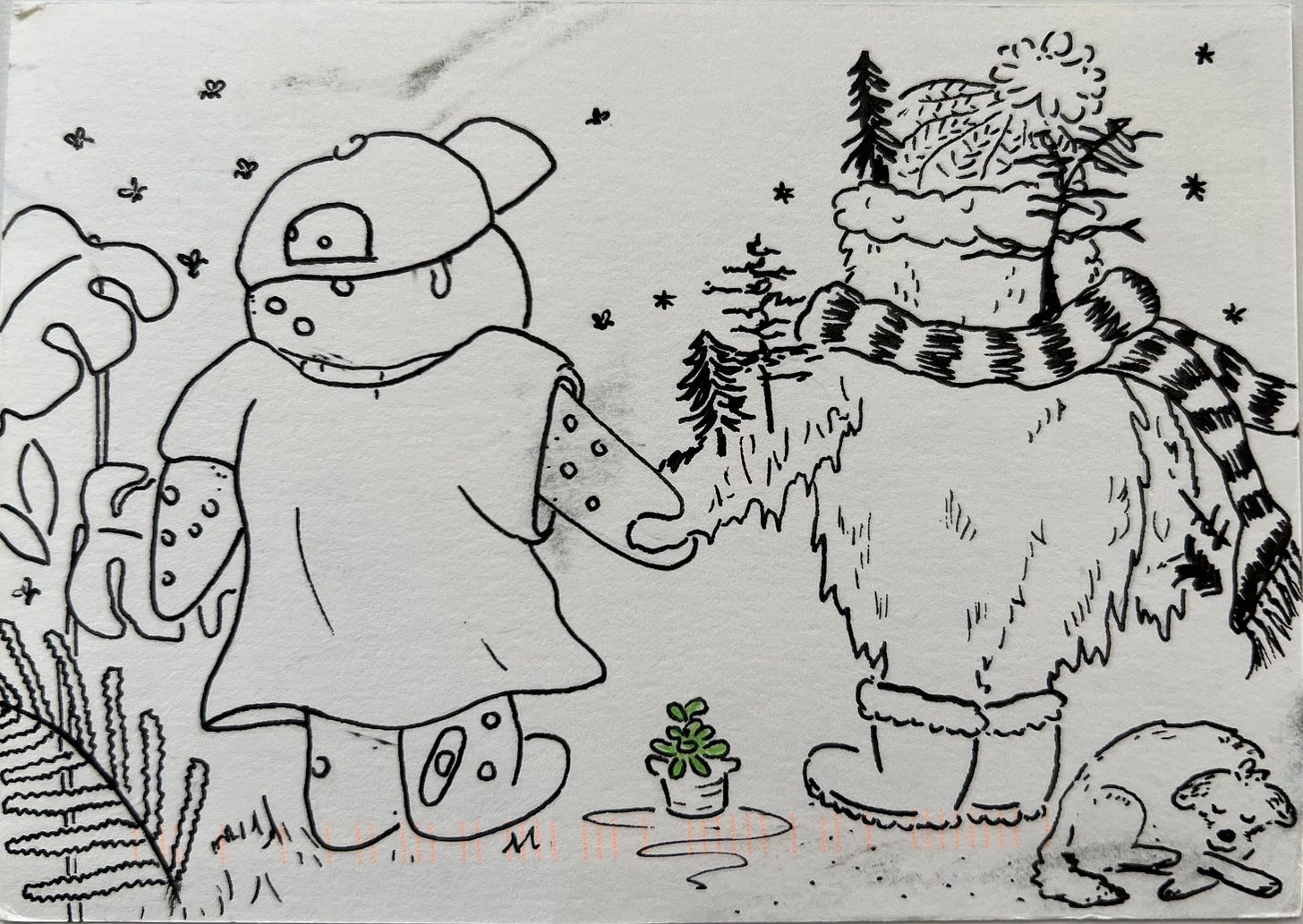Christopher runs hot. In terms of temperature, but also mood. In the morning, he drinks profanity before coffee. He yells at museum pieces and sends back half-eaten appetizers.
Leander runs cold. His extremities are evergreen, perennially discolored. “Must you?” is his constant refrain. The metaphor — temperature and mood — he finds tedious, and he will tell you so in a whisper.
They are a match.
But what we need is the mirror image of who we are, and so the weather around Christopher is always alpine. As you approach him, pressureless climatic motors become audible, and a chill trembles the air.
Leander, on the other hand, is enveloped in pools of humidity. Long after the autumnal equinox, a cloud of mosquitoes trails him, trying to roost in his apparatus, and he has red welts on his arms until the first snowfall.
When the two of them are out for lunch, they tend to stay distant: Christopher in his short sleeves, accosting the passersby, frost on his visor; Leander huddled up on a pillow, a teapot in his lap, reading obscure critiques that grow dewy from his weather suit. When they come together at night, they act as counterbalances, and are happy as long as they are touching.
Yet personality, like politics, is thermostatic: we become what we aren’t in order to explore the contrast. Thus, in middle age, does Christopher turn sullen, aloof, while Leander locates a hidden confidence and starts thrusting his opinions at the public. Now in the museum it is Leander who, awash in perspiration, decries the paintings of Kenny Scharf — “Must he?” — while Christopher, all ice and pallor, waits in the corner with a milky smirk.
In old age, their personalities revert to their original form. Their bodily needs increase in volume, too. So much so that they spend evenings on opposite ends of the house, each in his own microclimate, trying not to become dysregulated. But they love, certainly they have always loved, the sound of the other’s voice, and so they talk on the phone, pretending that they are on opposite ends of the globe.
“What’s it like over there?” Leander asks.
“We set out from Tierra del Fuego last night,” says Christopher. “Ice floes abound. I fear the ship will get stuck.”
When Christopher falls ill, they decide they need to see each other more regularly. They hire a company to move their bed to the living room and install a cot in the corner. Christopher takes the bed, Leander the cot. It’s a long illness, and so the arrangement lasts the better part of a year. The dog, with its heavy coat, prefers Christopher’s corner. Leander’s corner is where the plants thrive. In the middle of the room, a succulent.





Damn.